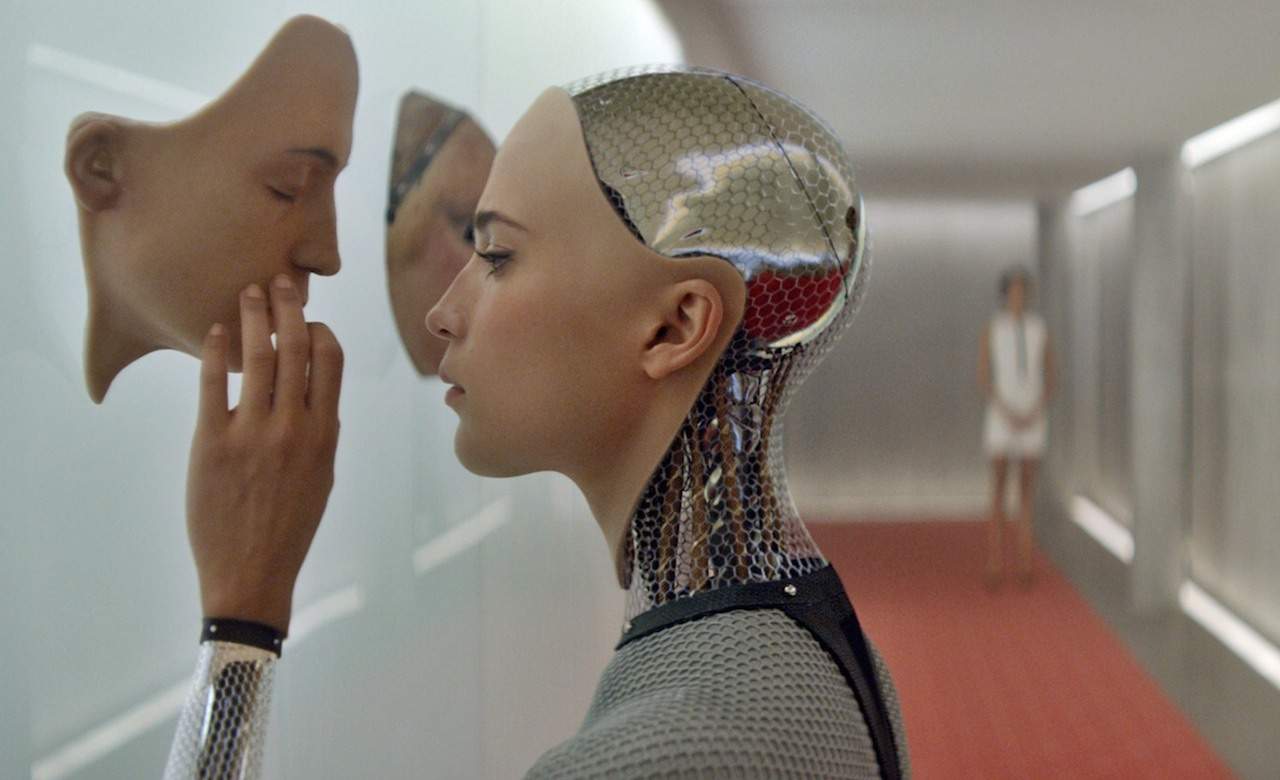Ex Machina
If you're looking for intellectually rewarding science fiction, here's your ticket.
Overview
One of the biggest films of 2015 sees a team of valiant superheroes do battle with a malevolent android named Ultron. A hulking hunk of metal bent on human annihilation, he’s the latest in a long line of movie robots run amuck, one that stretches back all the way to Fritz Lang’s silent Metropolis and encompasses many of the all-time great science-fiction films, including 2001: A Space Odyssey, The Terminator and the criminally underrated masterpiece that is Bill and Ted’s Bogus Journey.
But while Ultron is busy making life difficult for Iron Man and pals, a smaller film is offering a more nuanced take on the dilemmas of artificial intelligence. The directorial debut of writer Alex Garland, Ex Machina is a (relatively) low-budget techno thriller that poses some big, frightening questions about where humankind may be headed. Carried on the shoulders of its three central performances, it’s an intriguing piece of understated science fiction that’ll leave you pondering its content long after it comes to an end.
The film follows Caleb (Domhnall Gleeson), a programmer for a massive internet search engine, who wins a mysterious company-wide lottery. His prize: spend a week with the company’s eccentric founder Nathan Bateman (Oscar Isaac) in his remote mountainside home and research lab. There, Caleb finds himself introduced to Bateman’s most incredible invention yet: a humanoid robot named Ava (Swedish actress Alicia Vikander). The purpose of Caleb’s visit, Bateman explains, is to spend time speaking with Ava, to determine whether she has truly achieved artificial intelligence. As the week stretches on, however, Caleb begins to sense that something is terribly amiss.
Although it’s his first film in the director’s chair, Garland is certainly no stranger to science fiction, having previously written the screenplays for Sunshine, 28 Days Later and Dredd. Still, Ex Machina is certainly his most cerebral work — slow moving, but never dull. As Ava and Caleb grow closer and Caleb begins to question Bateman’s ultimate goals, the film forces us to consider a number of difficult ideas, from what exactly it means to be human to what responsibilities come with playing God.
A big part of what keeps the film engaging are the performances of Garland’s three leads. Gleeson’s awkward, good natured Caleb strikes a stark contrast with Isaac’s macho take on Bateman, whose heavy drinking and aggressive alpha male personality adds an uneasy tension to many of their exchanges. So too is it difficult to pin down the dynamic between Caleb and Vikander’s seemingly innocent robot, especially when she begins to show hints of romantic interest in her new companion — feelings that he soon begins to reciprocate.
The film is at its best when it's exploring these kinds of emotional, social and technological grey areas. Hidden character motivations leave viewers in the same spot as Caleb, feeling increasingly uneasy, and unsure of exactly where they stand. If you just want explosions, go and see Age of Ultron. But if you’re looking for something a little more intellectually rewarding, Ex Machina is the ticket for you.







